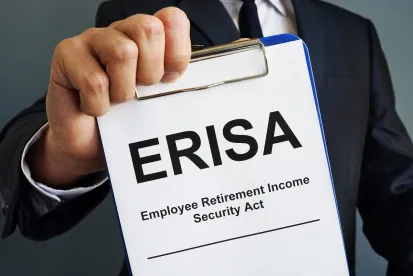A Massachusetts district court recently ordered defendants in an ERISA fiduciary breach case to produce certain communications with their in-house and outside counsel, rejecting defendants’ argument that the communications occurred in the context of attorneys advising a 401(k) plan’s sponsor and fiduciaries as to their potential fiduciary liability. In re GE ERISA Litig., 2022 U.S. Dist. LEXIS 16586 (D. Mass. Jan. 26, 2022).
The parties’ discovery dispute arose in one of the many class action lawsuits pending against 401(k) plan sponsors and fiduciaries concerning the management of their 401(k) plans. During the course of discovery, defendants withheld communications with their attorneys regarding their 401(k) plan’s investment policy, investment directives, and fiduciary committee charters on the basis of attorney-client privilege. Plaintiffs moved to compel production, arguing that the documents were not privileged due to the fiduciary exception to the attorney-client privilege. Under that doctrine, courts have held that legal advice to plan fiduciaries about plan administration is not protected by attorney-client privilege because such advice is given to the plan fiduciaries on behalf of and for the benefit of the plan participants, thus it is not proper to shield such communications from participant view.
Defendants argued that the communications fell into one of the exceptions to the fiduciary exception, wherein attorney-client privilege re-attaches to communications if the legal advice relates to the plan fiduciaries’ personal liability. In particular, defendants argued that attorneys reviewed plan documents, like investment policies and charters, to advise the fiduciaries on the risk of fiduciary liability given the increasing frequency of 401(k) litigation against employers.
The district court ordered the communications to be produced and differentiated between attorney review based on pending or anticipated litigation, which is privileged, and review based on “a general fear of liability,” which is not privileged. The court was “not persuaded that the prevalence of other 401(k) litigation during the relevant time period is a specific enough litigation risk” to trigger the protection of attorney-client privilege because “guarding against a generalized risk of litigation is a fiduciary duty and does not create a divergence between the interests of the fiduciaries and Plan beneficiaries,” and allowing a fiduciary to fall back on the excuse would cause the fiduciary exception to “cease to function as intended.”




 />i
/>i

